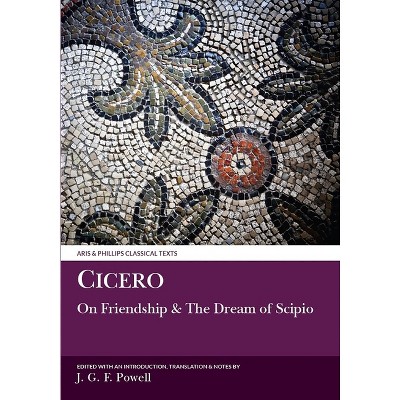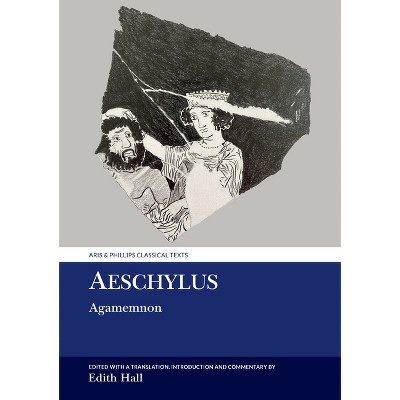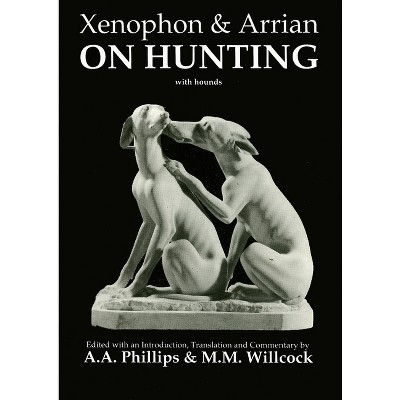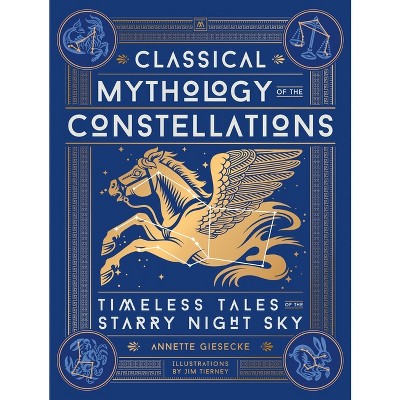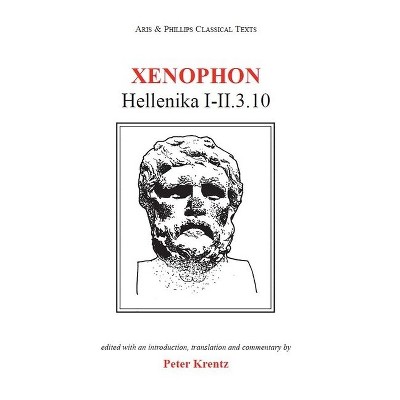Demagogues, Power, and Friendship in Classical Athens - by Robert Holschuh Simmons (Paperback)

$39.95 when purchased online
Target Online store #3991
About this item
Highlights
- What makes a demagogue?
- About the Author: Robert Holschuh Simmons is Minnie Billings Capron Professor of Classical Languages at Monmouth College, USA.
- 192 Pages
- History, Ancient
Description
About the Book
"What makes a demagogue? A much more friendly touch, or more importantly, a perception of a friendly touch, than has previously been explored. Demagogues, Power and Friendship in Classical Athens examines the ways in which a demagogic leadership style based on personal connection became ingrained in this period, drawing on close study of several genres of literature of the late 5th and early-to-mid 4th centuries BCE. Such connection was particularly effective with lower classes of Athenians, who had been accustomed to being excluded from politicians' friendship-based approaches to coalition-building. Comedies of Aristophanes (particularly Knights), tragedies of Euripides (particularly Iphigenia in Aulis), and historical biographies of Xenophon (particularly Anabasis and Cyropaedia) depict demagogues, or characters exhibiting demagogic characteristics, using a style of outreach to members of neglected classes that involved provoking feelings of friendship with individuals in these classes, whether the demagogues and individual supporters actually interacted closely or not. These leaders employed techniques, such as propinquity, homophily, and transitivity, that both contemporary sociologists (and, in some cases, Aristotle) recognize as effective for such purposes. Particular attention is paid to discrepancies in Aristophanes' Knights between how the demagogue Cleon is hyperbolically portrayed (as a pederastic lover of the Athenian people) and how his language and actions make him out - as a friend of theirs, as he likely portrayed himself"--Book Synopsis
What makes a demagogue? A much more friendly touch, or more importantly, a perception of a friendly touch, than has previously been explored. Demagogues, Power and Friendship in Classical Athens examines the ways in which a demagogic leadership style based on personal connection became ingrained in this period, drawing on close study of several genres of literature of the late 5th and early-to-mid 4th centuries BCE. Such connection was particularly effective with lower classes of Athenians, who had been accustomed to being excluded from politicians' friendship-based approaches to coalition-building.Comedies of Aristophanes (particularly Knights), tragedies of Euripides (particularly Iphigenia in Aulis), and historical biographies of Xenophon (particularly Anabasis and Cyropaedia) depict demagogues, or characters exhibiting demagogic characteristics, using a style of outreach to members of neglected classes that involved provoking feelings of friendship with individuals in these classes, whether the demagogues and individual supporters actually interacted closely or not. These leaders employed techniques, such as propinquity, homophily, and transitivity, that both contemporary sociologists (and, in some cases, Aristotle) recognize as effective for such purposes. Particular attention is paid to discrepancies in Aristophanes' Knights between how the demagogue Cleon is hyperbolically portrayed (as a pederastic lover of the Athenian people) and how his language and actions make him out - as a friend of theirs, as he likely portrayed himself.
Review Quotes
A timely re-assessment of the Athenian demagogues. It places novel emphasis on the significance of friendship (philia) in their interactions with the Athenian community and in their negotiation of power.
About the Author
Robert Holschuh Simmons is Minnie Billings Capron Professor of Classical Languages at Monmouth College, USA.Dimensions (Overall): 9.21 Inches (H) x 6.14 Inches (W) x .41 Inches (D)
Weight: .61 Pounds
Suggested Age: 22 Years and Up
Number of Pages: 192
Genre: History
Sub-Genre: Ancient
Publisher: Bloomsbury Publishing PLC
Theme: Greece
Format: Paperback
Author: Robert Holschuh Simmons
Language: English
Street Date: September 19, 2024
TCIN: 93710503
UPC: 9781350214491
Item Number (DPCI): 247-22-7410
Origin: Made in the USA or Imported
Shipping details
Estimated ship dimensions: 0.41 inches length x 6.14 inches width x 9.21 inches height
Estimated ship weight: 0.61 pounds
We regret that this item cannot be shipped to PO Boxes.
This item cannot be shipped to the following locations: American Samoa (see also separate entry under AS), Guam (see also separate entry under GU), Northern Mariana Islands, Puerto Rico (see also separate entry under PR), United States Minor Outlying Islands, Virgin Islands, U.S., APO/FPO
Return details
This item can be returned to any Target store or Target.com.
This item must be returned within 90 days of the date it was purchased in store, shipped, delivered by a Shipt shopper, or made ready for pickup.
See the return policy for complete information.
Trending Non-Fiction


$12.54
MSRP $22.00
Save $5 when you spend $25 on select books
4.7 out of 5 stars with 20 ratings


$10.84
MSRP $15.99
Save $5 when you spend $25 on select books
4.9 out of 5 stars with 12 ratings

$20.75 - $21.99
MSRP $21.99 - $32.50 Lower price on select items
Save $5 when you spend $25 on select books on select items
4.6 out of 5 stars with 9 ratings

$18.71
MSRP $34.99
Save $5 when you spend $25 on select books
5 out of 5 stars with 9 ratings
